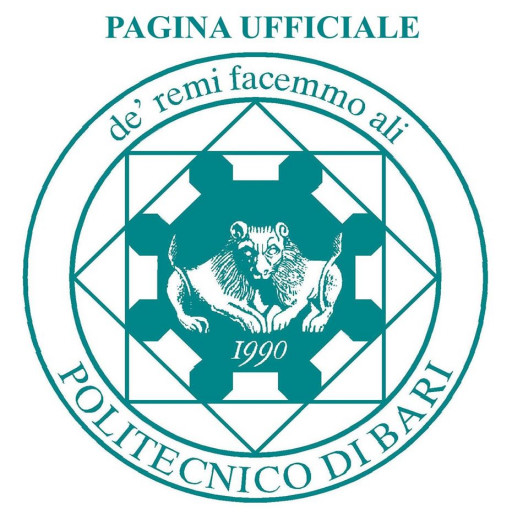Photos of university / #politechnika_gdanska
Control Engineering and Robotics — Specialization: Decision Systems at Gdansk University of Technology offers a comprehensive and forward-looking education designed to prepare students for the rapidly evolving fields of automation, robotics, and intelligent system design. This specialization focuses on developing advanced skills in modeling, analysis, and control of dynamic systems, equipping graduates with the expertise needed to address complex engineering problems in various industrial sectors. Students will gain deep knowledge of control theory, automation technologies, and artificial intelligence, which are essential for designing autonomous systems, decision-making algorithms, and smart robotics solutions.
Throughout the program, students will engage in hands-on projects that involve the development of control algorithms, optimization methods, and decision support systems. The curriculum emphasizes interdisciplinary learning, combining principles of electrical engineering, computer science, and mechanical engineering to foster the creation of integrated control and robotics solutions. Special attention is given to modern topics such as automation in manufacturing, intelligent robots for service and industrial applications, and the integration of sensors and actuators in complex systems.
Students will also learn about the latest advances in machine learning, data analysis, and sensor technology, enabling them to develop innovative decision systems that enhance operational efficiency, safety, and reliability. The program benefits from state-of-the-art laboratories and research centers within the university, providing students with practical experience using modern tools and software. Moreover, collaboration with industry partners ensures that students are exposed to real-world challenges and are prepared for successful careers in engineering, research, and development.
Graduates of this specialization will be well-equipped to work in sectors such as manufacturing, automation, automotive, aerospace, and robotics. They will have the ability to design, implement, and optimize control systems and intelligent decision-making algorithms tailored to specific industrial needs. The program also lays a solid foundation for those interested in pursuing further studies or careers in research, innovation, or technical consultancy. Overall, Control Engineering and Robotics — Specialization: Decision Systems at Gdansk University of Technology is an ideal choice for ambitious students eager to contribute to technological advancements and to lead the development of intelligent automated systems in a variety of high-tech fields.
The Control Engineering and Robotics – Specialization: Decision Systems program at Gdansk University of Technology is designed to equip students with advanced knowledge and practical skills in the field of intelligent control systems, automation, and robotics. The curriculum focuses on the development, implementation, and analysis of decision-making algorithms that are fundamental to modern automation solutions across various industries. Students will explore theoretical foundations alongside hands-on experiences, preparing them for innovative roles in designing autonomous systems, industrial automation, intelligent control architectures, and robotic applications.
Throughout the program, participants gain a deep understanding of control theory, including classical and modern control methodologies, as well as computational techniques for processing signals and data. A significant component of the specialization is dedicated to decision systems, where students learn to develop algorithms for autonomous decision-making under uncertainty, such as in automated manufacturing, intelligent transportation systems, and service robots. The coursework emphasizes the integration of sensor technologies, machine learning, and artificial intelligence methods to enhance robotic and control system performance.
In addition to core subjects, students are encouraged to undertake laboratory exercises and projects that simulate real-world scenarios, allowing them to apply theoretical knowledge to practical problems. They will work with modern control hardware, simulation software, and programming environments commonly used in industry. Special topics include fuzzy control, adaptive control, neural networks, and the design of robust and fault-tolerant systems.
Graduates of the Decision Systems specialization are prepared for careers in research, development, and implementation of intelligent control systems in sectors such as manufacturing, automotive, aerospace, and service robotics. They can also pursue further academic studies or engage in multidisciplinary projects involving data analysis, system optimization, and automation technology. The program aims to foster innovative thinking, problem-solving skills, and a comprehensive understanding of the technological and ethical aspects related to autonomous decision-making in complex systems.
Earned BSc (or equivalent) degree confirming completion of 1st level (undergraduate) studies. Background in math and physics, university of technology type education strongly recommended.
Financing studies for the Control Engineering and Robotics — Specialization: Decision Systems program at Gdansk University of Technology are primarily supported through a combination of national and European funding sources, as well as university internal resources. The program benefits from scholarships and financial aid schemes aimed at both domestic and international students, designed to facilitate access to education regardless of economic background. Students may apply for government scholarships offered by the Polish National Agency for Academic Exchange (NAWA), which support talented students through merit-based awards. Additionally, the university participates in the Erasmus+ program, enabling students to undertake part of their studies abroad in partner universities across Europe, with financial support covering mobility, accommodation, and living expenses. The university also offers various merit-based and need-based scholarships funded from university budgets to assist students in covering tuition fees and living costs.
Tuition fees vary depending on the student’s nationality, with EU students generally paying lower or no tuition fees due to Polish regulations and university policies. Non-EU students are usually required to pay tuition fees established by the university, which are communicated annually and may include additional costs for laboratory access, textbooks, and materials. The program’s fee structure is designed to be transparent, offering students clear information about the costs involved before enrollment. Many students finance their studies through part-time employment, internships, or industry sponsorship, which are often facilitated through the university's career services or industry partnerships.
Furthermore, the university actively encourages students to seek external funding options, including grants from research projects, private sector sponsorships, and international organizations. The European Union also provides funding opportunities for research and development projects that students and faculty can participate in, thus creating additional avenues for financial support. Most students pursuing the Control Engineering and Robotics — Specialization: Decision Systems program combine their studies with employment or sponsorships, reducing the financial burden and enabling them to focus effectively on their academic and research activities. Overall, the financing of this program is structured to ensure accessibility and to support students throughout their educational trajectory, leveraging a broad spectrum of funding channels allocated to higher education in Poland.
The Control Engineering and Robotics — Specialization: Decision Systems at Gdansk University of Technology is a comprehensive program designed to prepare students for careers in automation, control systems, and decision-making technologies. The program emphasizes the development of theoretical knowledge and practical skills necessary to design, analyze, and implement modern control and robotics systems. The curriculum covers a wide range of topics, including automation, control theory, robotics, artificial intelligence, machine learning, decision support systems, and industrial automation. Students gain hands-on experience through laboratory work, project-based learning, and internships, enabling them to apply theoretical concepts to real-world problems.
The specialization focuses particularly on decision systems, which are essential for autonomous robots, intelligent control, and adaptive systems used in industry, transportation, and service sectors. The program integrates core engineering principles with advanced topics such as fuzzy logic, neural networks, and data-driven decision-making algorithms. Students are encouraged to develop problem-solving skills and innovative thinking, preparing them to address contemporary challenges in robotics and automated control systems.
Graduates of this program are equipped to work in various sectors, including manufacturing, aerospace, automotive, and energy industries, as well as research and development in academia or private companies. The program fosters interdisciplinary collaboration by combining electrical engineering, computer science, and mechanical engineering disciplines. The teaching staff includes experienced researchers and industry practitioners who bring practical insights and up-to-date knowledge to the classroom.
Gdansk University of Technology provides state-of-the-art laboratories, simulation tools, and software resources necessary for advanced research and development activities. The program is aligned with European educational standards, ensuring that graduates possess the skills and qualifications needed for international employment opportunities. Additionally, students have opportunities for exchange programs and collaborations with other European universities, further enhancing their educational experience.
Overall, the Control Engineering and Robotics — Specialization: Decision Systems offers a comprehensive educational pathway for students interested in cutting-edge automation and intelligent decision-making systems, aiming to foster innovation and leadership in the rapidly evolving fields of control engineering and robotics.







